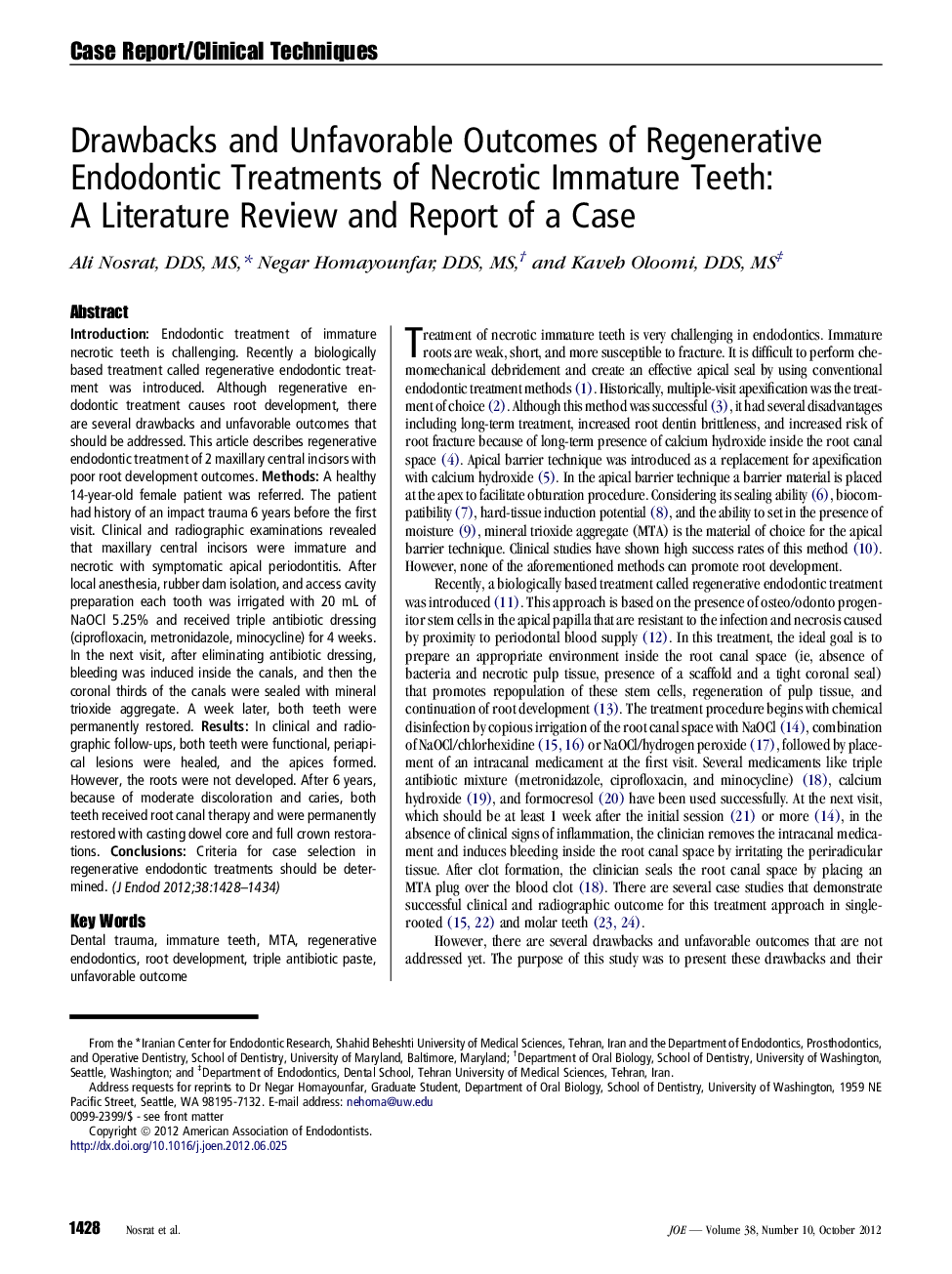| Article ID | Journal | Published Year | Pages | File Type |
|---|---|---|---|---|
| 3148846 | Journal of Endodontics | 2012 | 7 Pages |
IntroductionEndodontic treatment of immature necrotic teeth is challenging. Recently a biologically based treatment called regenerative endodontic treatment was introduced. Although regenerative endodontic treatment causes root development, there are several drawbacks and unfavorable outcomes that should be addressed. This article describes regenerative endodontic treatment of 2 maxillary central incisors with poor root development outcomes.MethodsA healthy 14-year-old female patient was referred. The patient had history of an impact trauma 6 years before the first visit. Clinical and radiographic examinations revealed that maxillary central incisors were immature and necrotic with symptomatic apical periodontitis. After local anesthesia, rubber dam isolation, and access cavity preparation each tooth was irrigated with 20 mL of NaOCl 5.25% and received triple antibiotic dressing (ciprofloxacin, metronidazole, minocycline) for 4 weeks. In the next visit, after eliminating antibiotic dressing, bleeding was induced inside the canals, and then the coronal thirds of the canals were sealed with mineral trioxide aggregate. A week later, both teeth were permanently restored.ResultsIn clinical and radiographic follow-ups, both teeth were functional, periapical lesions were healed, and the apices formed. However, the roots were not developed. After 6 years, because of moderate discoloration and caries, both teeth received root canal therapy and were permanently restored with casting dowel core and full crown restorations.ConclusionsCriteria for case selection in regenerative endodontic treatments should be determined.
